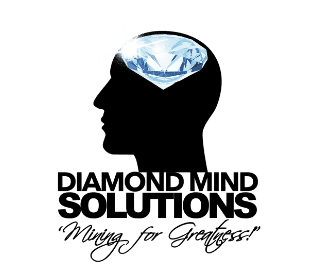Thriving in a Shifting Job Market: Skills to Develop Now and for the Next 5 Years

The job market is in a constant state of flux, influenced by technology, global events, and evolving consumer demands. As we approach 2025 and look beyond, the pace of change seems faster than ever. Whether you’re entering the workforce, considering a career pivot, or aiming to future-proof your skillset, understanding current trends and preparing for what’s next is essential.
The Current State of the Job Market
- Remote Work is Here to Stay (in Hybrid Form):
While fully remote roles have declined from their pandemic peak, hybrid work models are becoming the norm across industries. Workers are expected to balance in-office collaboration with at-home productivity. This shift demands adaptability and strong digital communication skills. - Tech Skills Are a Must, No Matter the Field:
Industries like finance, healthcare, education, and even retail now integrate technology at their core. Artificial intelligence (AI) and automation are not just buzzwords, they’re reshaping how businesses operate. As a result, roles involving data analysis, AI development, and digital marketing are booming. - Labor Shortages and Upskilling:
While unemployment remains relatively low, companies face challenges filling roles requiring specialized skills. This gap presents opportunities for professionals willing to reskill or upskill. - Increased Focus on Soft Skills:
Emotional intelligence, teamwork, and communication are as vital as ever, especially in leadership roles or customer-facing positions. Employers value professionals who can collaborate effectively and navigate workplace dynamics.
Skills to Develop Now
- Digital Literacy:
No matter your field, proficiency with tools like Microsoft Teams, Slack, and data management software is essential. Learn how to use AI-powered tools like ChatGPT and understand basic coding or analytics. - Adaptability and Resilience:
Being able to pivot when faced with change—whether it’s new technology or shifts in industry demands—makes you a valuable team player. Develop a growth mindset by embracing lifelong learning and seeking feedback. - Communication Skills:
Writing, speaking, and active listening skills are critical in an increasingly virtual and global workplace. Invest time in refining your ability to convey ideas clearly and persuasively. - Emotional Intelligence (EQ):
The ability to manage your emotions and understand others is a differentiator in collaborative environments. Skills in conflict resolution, empathy, and team leadership are highly valued.
Skills for the Next 5 Years
- AI and Automation Fluency:
Understanding how AI tools like ChatGPT or automation systems impact your industry will be crucial. Learn to work alongside these technologies rather than fear them. - Sustainability Knowledge:
As companies prioritize environmental, social, and governance (ESG) goals, knowledge of sustainability practices will become a competitive advantage. Roles in green technology, renewable energy, and sustainable business are expected to grow. - Critical Thinking and Problem-Solving:
AI can process data, but humans remain essential for interpreting insights and making strategic decisions. Cultivate your analytical skills to tackle complex challenges. - Cultural Competence and Global Awareness:
In a world where teams are often spread across continents, understanding cultural nuances and global market trends is vital. Language skills and cross-cultural communication training can set you apart. - Health and Wellness Integration:
The pandemic underscored the importance of mental health and work-life balance. Skills in employee wellness, organizational psychology, or ergonomics could become increasingly relevant in HR and managerial roles
How to Prepare
- Continuous Learning:
Platforms like Coursera, LinkedIn Learning, and Khan Academy offer accessible courses on in-demand skills. Certifications in project management (e.g., PMP), data analytics, or leadership can also bolster your resume. - Networking:
Join professional associations, attend industry events, and leverage LinkedIn to stay informed about trends and opportunities in your field. - Hands-On Experience:
Take on stretch assignments at work, volunteer for projects outside your comfort zone, or freelance to build new skills in a practical context. - Personal Branding:
Update your LinkedIn profile, create a personal website or portfolio, and engage with thought leaders online. A strong personal brand makes you more visible to recruiters and industry peers.
Final Thoughts
The job market of today and tomorrow demands a blend of technical expertise, adaptability, and human touch. By investing in the right skills and maintaining a proactive attitude, you can not only survive but thrive amid the ongoing evolution. Remember, the future belongs to those who are willing to learn, unlearn, and relearn.
What steps are you taking to future-proof your career? Share your thoughts in the comments!
Contact Us
Ready to Transform Your Life?
Fill out the form below, and our team will be in touch to discuss how we can assist you on your journey to success. Let’s unlock your potential together!

